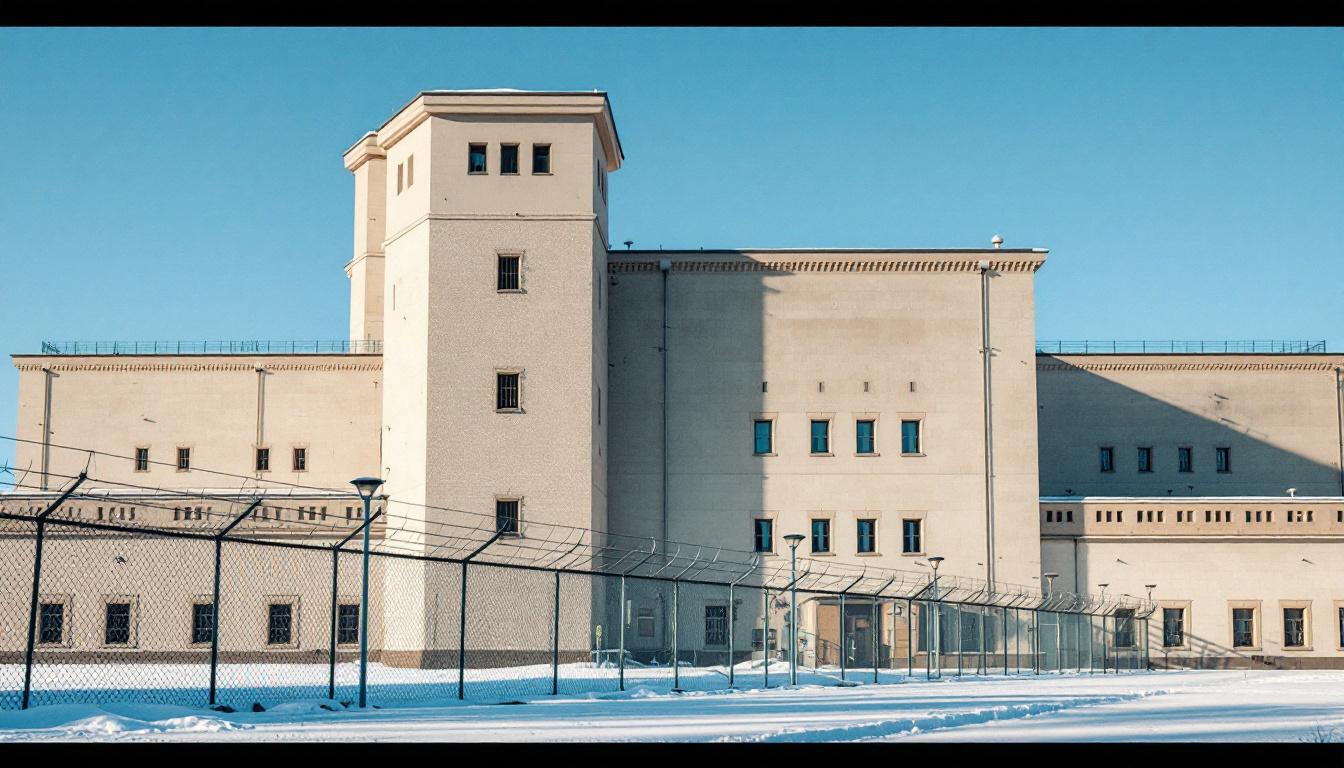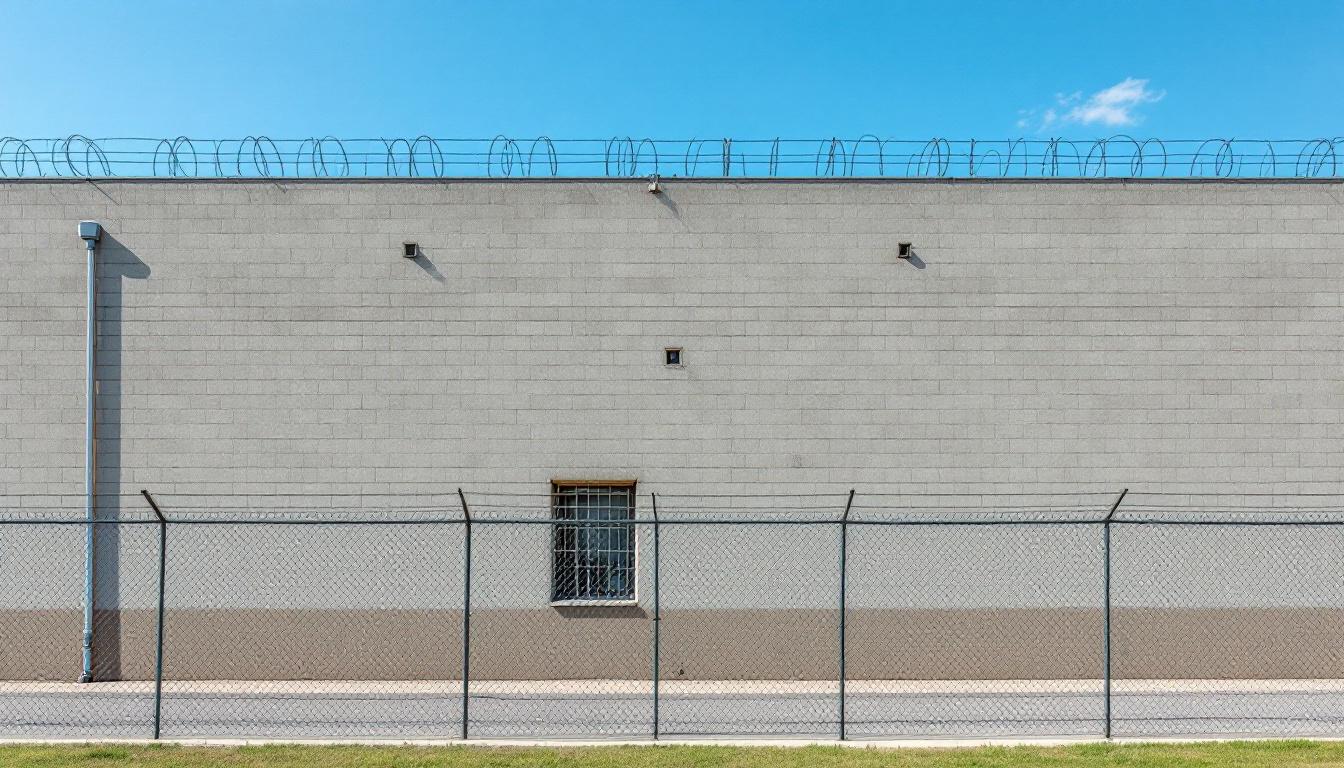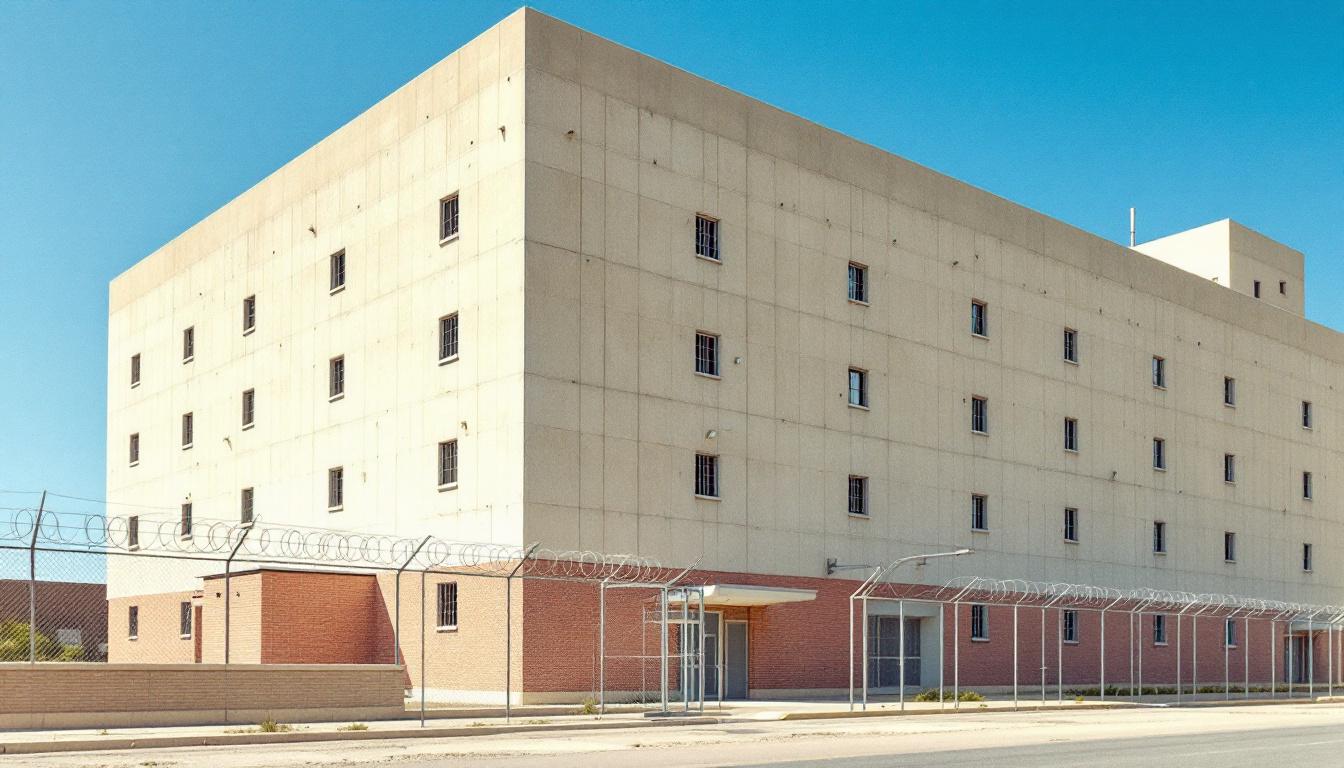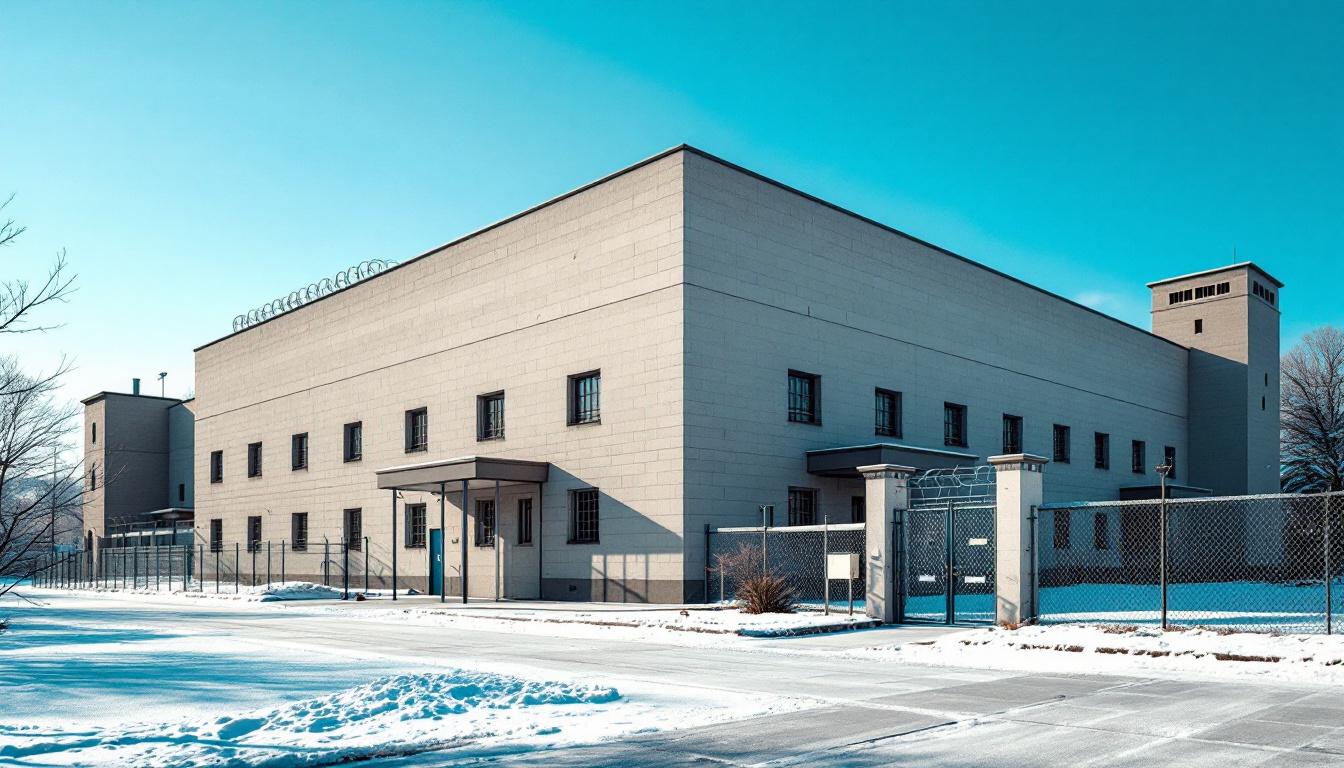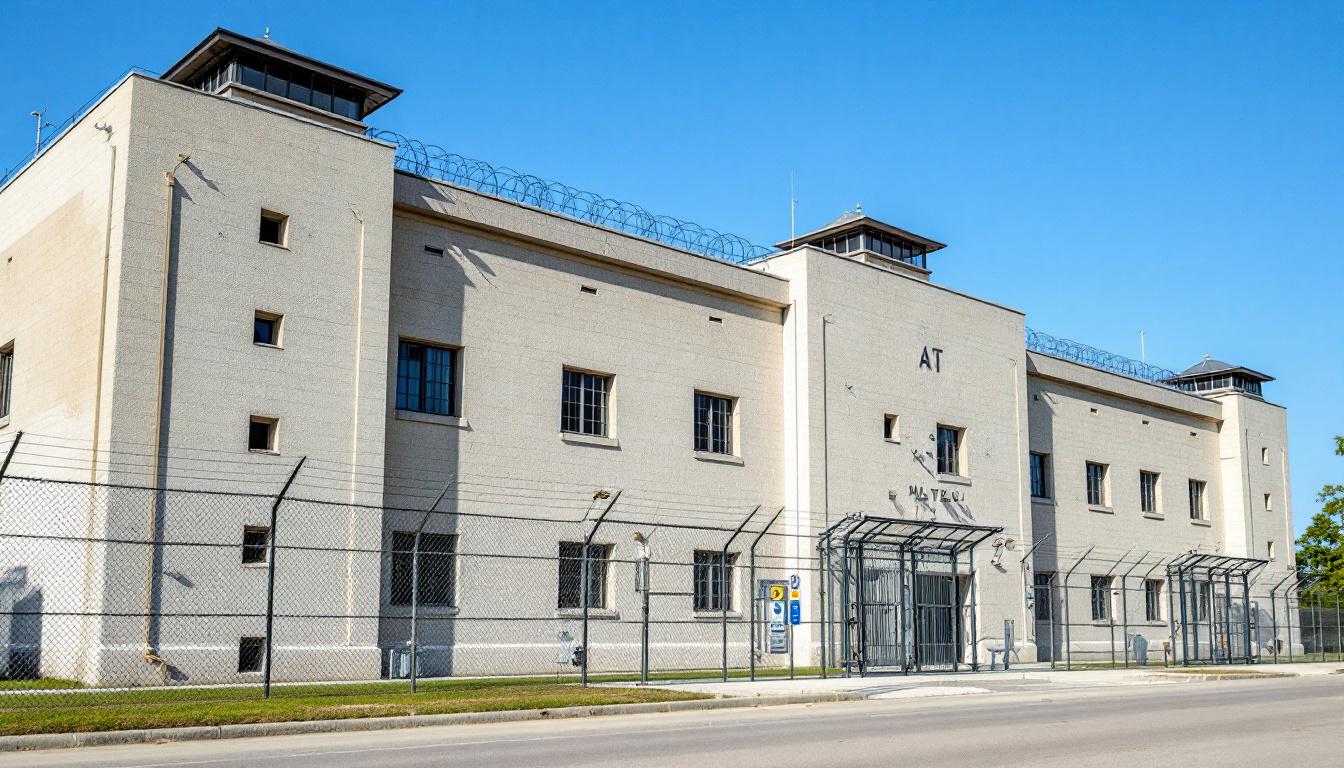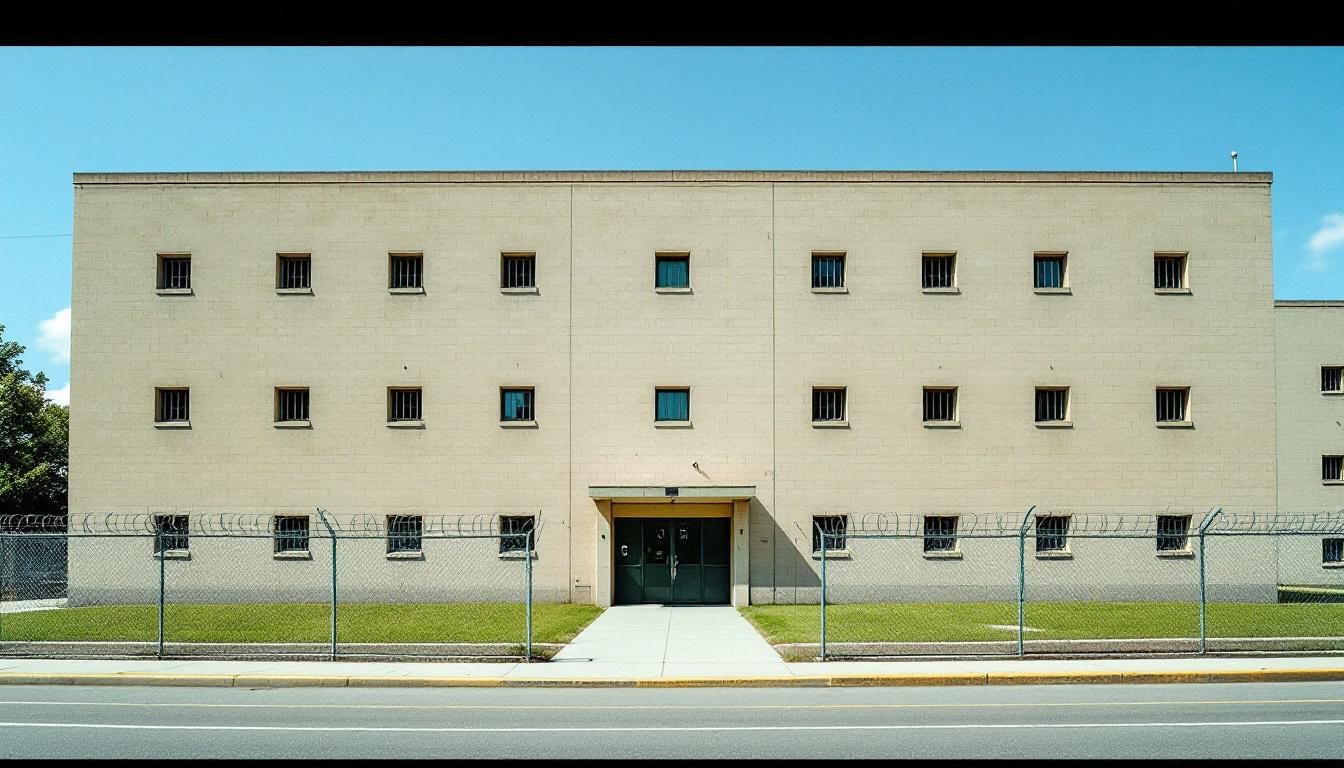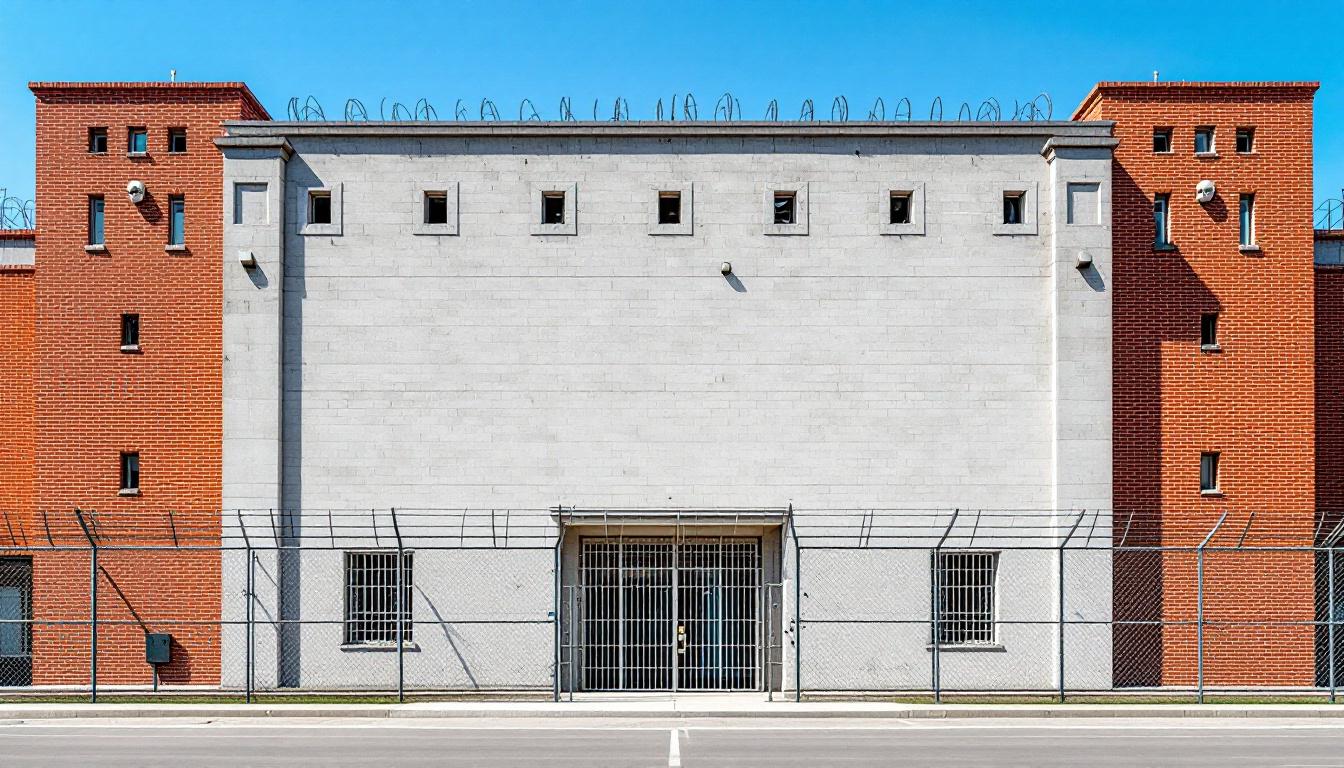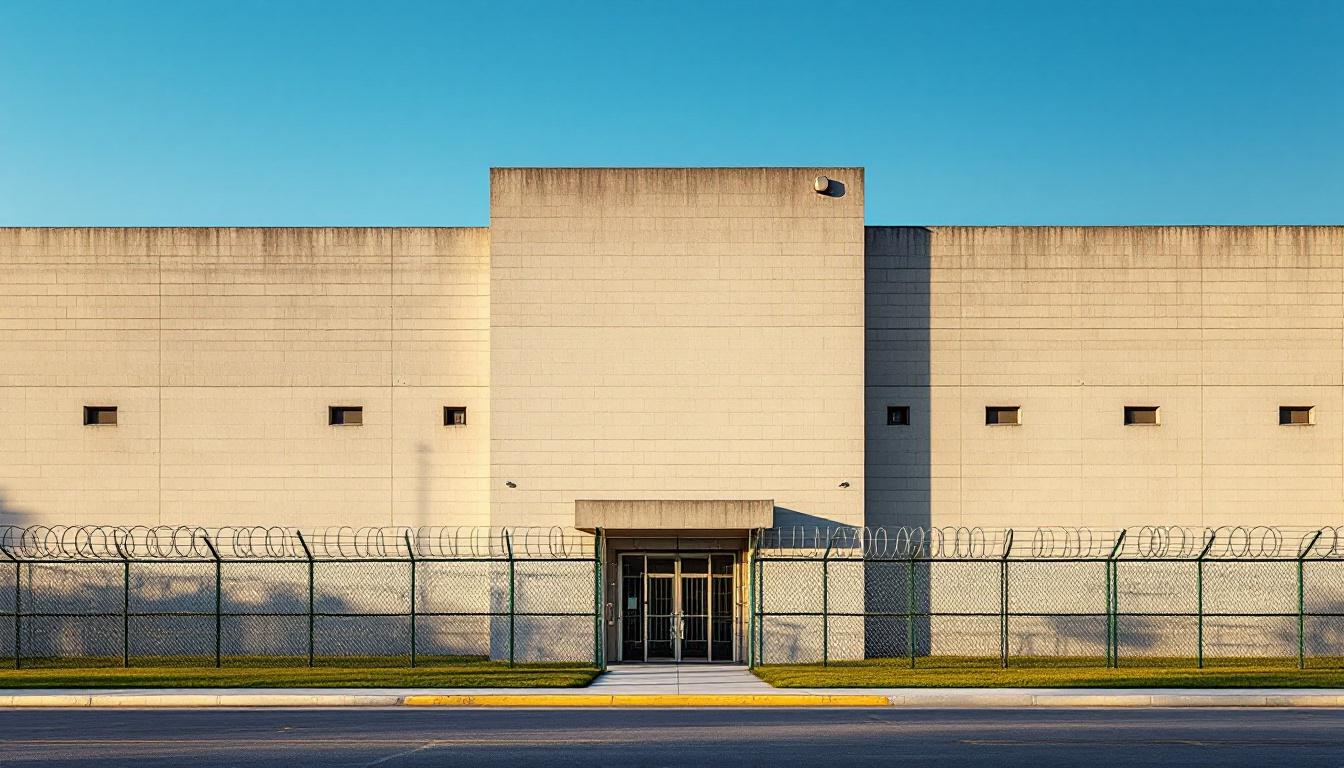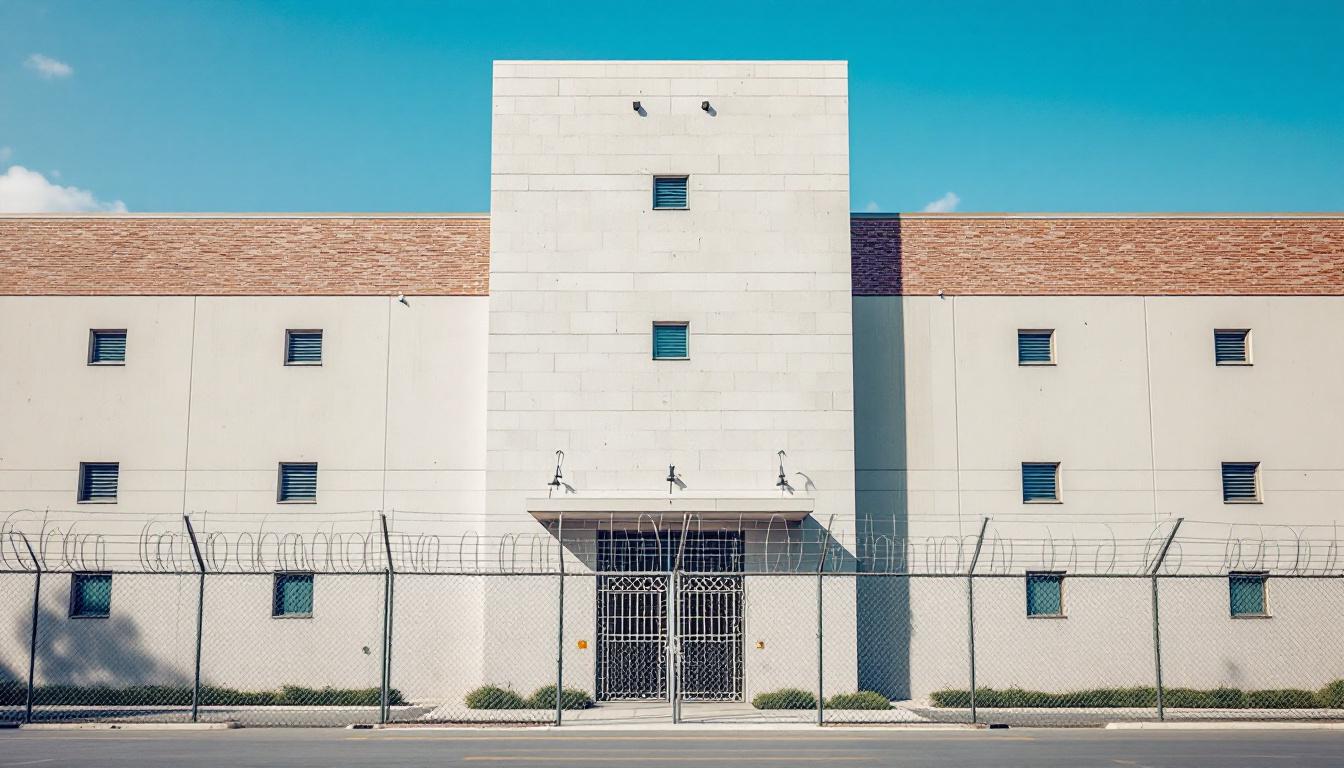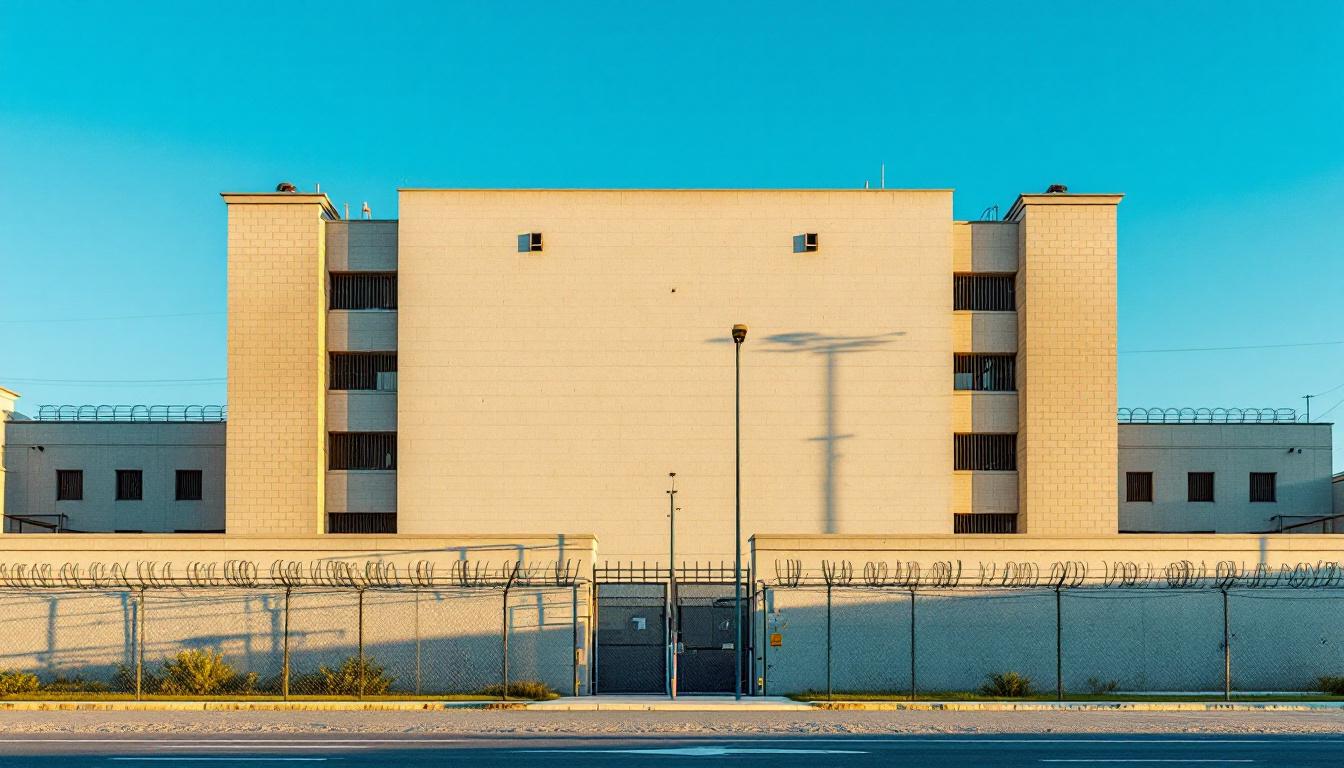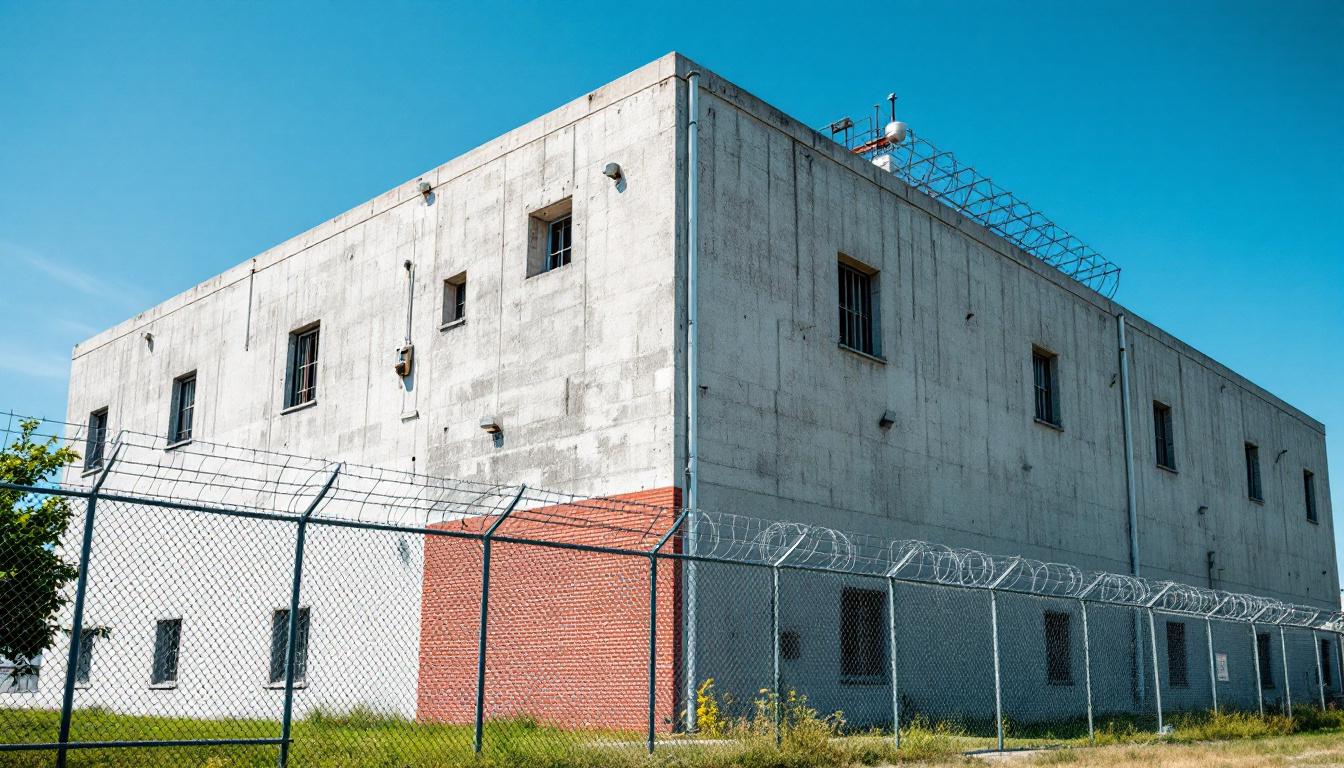
Quick Navigation
How to contact an inmate at Marana Community Correctional Treatment Facility
This comprehensive guide will walk you through how to connect with an inmate at Marana Community Correctional Treatment Facility. Follow the steps below to find an inmate and send letters and photos:
- Search for the inmate using our search tool below
- Create your account or log in to Penmate
- Write your message (up to 6,000 characters)
- Send instantly - inmates receive printed copies daily
Find an Inmate
Search for an inmate to start communicating today
Tip: You can search by first name, last name, or inmate ID number
To contact a person at Marana Community Correctional Treatment Facility start by searching for the person on the facility website. Perform a search by following these steps:
- Step 1: Enter their first name and last name into the search form and click "Search"
- Step 2: Locate their inmate record
- Step 3: Write down their Inmate ID and any housing information provided
Important! Be sure to enter the person's full name. Nicknames should not be used.
How to Send Messages to Inmates

You can use your phone or computer to send emails, letters, and photos to an inmate. Messages are sent electronically to inmate tablets or kiosks at the facility. If you would like to send a message, start by searching for an inmate at Marana Community Correctional Treatment Facility.
Sending Photos and Postcards

A great way to send love and support to a loved one at Marana Community Correctional Treatment Facility is to send photos and postcards. It only takes a few minutes to send photos from your phone and it makes a huge difference. You can also mail postcards with words of support and inspiration, or design your own postcard for special moments like birthdays and holidays.
Important! Be sure not to send any explicit photos or they may not be approved by the facility. You can also use a photo printing app like Penmate to make sure your photos are printed at the correct size (4x6 or 3x5) and are mailed according to the rules and regulations of Marana Community Correctional Treatment Facility.
Frequently asked questions about Marana Community Correctional Treatment Facility
-
How long does it take to deliver a message?
If you're sending an email message your letter is usually delivered within 24-48 hours. For messages sent via mail you should expect delivery within 3-7 days. All messages will need be approved by Marana Community Correctional Treatment Facility.
-
How much does it cost to send a message to Marana Community Correctional Treatment Facility?
You can send a message free using your phone or mail a message via USPS for the price of a $0.60 stamp and envelope. You can also purchase credits or e-stamps from services starting at $1.99.
-
What services can I use to contact an inmate at Marana Community Correctional Treatment Facility?
Penmate
You can use Penmate to send letters and photos to an inmate from your phone. It's an easy way to stay in touch during your loved one's incarceration. Use the inmate locator to find an inmate's location and contact information, then you can send messages within a few minutes.
Securus messaging
Securus may be another option for communicating with an inmate at Marana Community Correctional Treatment Facility. You can create a friends and family account and purchase credits to send messages. All messages will be reviewed and must be approved by the facility.
JPay
Some county jails and state prisons may support sending messages with JPay. You must register an account with the system, find your loved one, and purchase stamps to send messages. For some locations you can also attach photos.
Smart Jail Mail
You may also check if Smart Jail Mail is available at Marana Community Correctional Treatment Facility. Smart Jail Mail is operated by Smart Communications and has contracted with some state and county jails. After purchasing credits, your messages and photos are sent to the facility, printed out, and then handed out to your loved one.
-
What is the mailing address of Marana Community Correctional Treatment Facility?
Mailing address:
Marana Community Correctional Treatment Facility
12610 W Silverbell Rd
Marana, AZ 85653
Phone: (520) 682-2077Business hours:
- Monday: 8:00 AM – 4:00 PM
- Tuesday: 8:00 AM – 4:00 PM
- Wednesday: 8:00 AM – 4:00 PM
- Thursday: 8:00 AM – 4:00 PM
- Friday: 8:00 AM – 4:00 PM
- Saturday: 8:00 AM – 4:00 PM
- Sunday: 8:00 AM – 4:00 PM
-
What are the visiting hours at Marana Community Correctional Treatment Facility?
Visiting hours at Marana Community Correctional Treatment Facility vary by housing unit and security level. Generally, visits are scheduled on weekends and holidays, with some facilities offering weekday visits. Contact the facility directly at (520) 682-2077 or check their website for the current visiting schedule. Visits typically last 30-60 minutes and must be scheduled in advance.
-
What items are prohibited when sending mail to Marana Community Correctional Treatment Facility?
Prohibited items typically include: cash, personal checks, stamps, stickers, glitter, glue, tape, staples, paperclips, polaroid photos, musical or blank greeting cards, hardcover books, magazines with staples, and any items containing metal or electronics. Only send letters on plain white paper with blue or black ink. Photos must be printed on regular photo paper (no Polaroids). Always check with Marana Community Correctional Treatment Facility for their specific mail policies.
-
How do I send money to an inmate at Marana Community Correctional Treatment Facility?
You can send money to an inmate at Marana Community Correctional Treatment Facility through several methods: 1) Online using JPay, Access Corrections, or the facility's approved vendor, 2) Money orders mailed directly to the facility with the inmate's name and ID number, 3) Kiosks located in the facility lobby, or 4) Over the phone using a credit or debit card. Fees vary by method, typically ranging from $2.95 to $11.95 per transaction.
-
Can I schedule a video visit with an inmate at Marana Community Correctional Treatment Facility?
Many facilities now offer video visitation as an alternative to in-person visits. At Marana Community Correctional Treatment Facility, video visits may be available through services like Penmate, Securus Video Connect, GTL, or ICSolutions. Video visits typically cost $10-20 for 20-30 minutes and must be scheduled in advance. You'll need a computer or smartphone with a camera and reliable internet connection. Contact the facility for their specific video visitation policies and approved vendors.
-
What identification do I need to visit an inmate at Marana Community Correctional Treatment Facility?
All visitors must present valid government-issued photo identification such as a driver's license, state ID, passport, or military ID. Minors must be accompanied by a parent or legal guardian who can provide the minor's birth certificate. Some facilities require visitors to be on the inmate's approved visitation list, which may require a background check. Contact Marana Community Correctional Treatment Facility for specific ID requirements and visitor approval procedures.
-
How can I find out an inmate's release date?
To find an inmate's release date at Marana Community Correctional Treatment Facility, you can: 1) Use the online inmate search tool if available, 2) Call the facility's records department, 3) Contact the inmate's case manager or counselor, or 4) Have the inmate provide this information during a call or visit. For privacy reasons, some facilities only release this information to immediate family members.
Facility Overview
Contact Information
Marana Community Correctional Treatment Facility12610 W Silverbell Rd
Marana, AZ 85653
Phone: (520) 682-2077
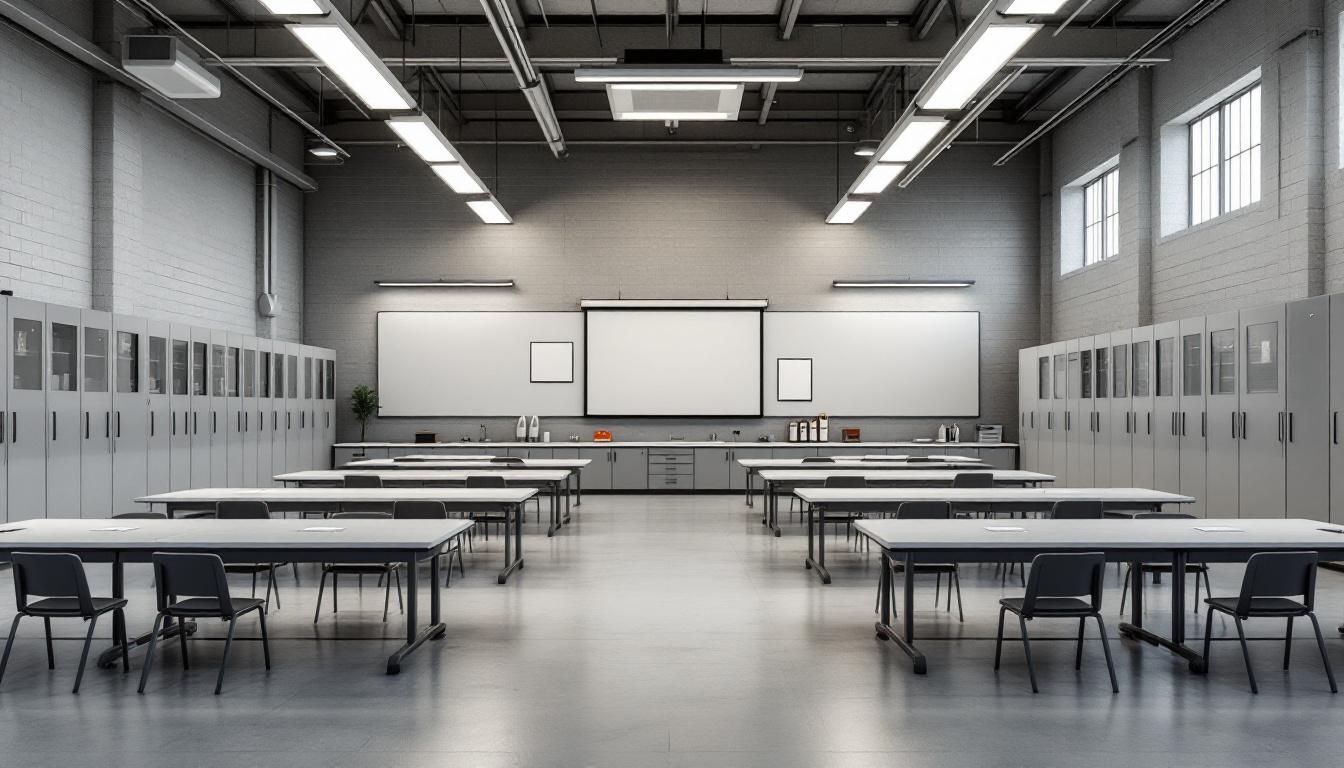
About Marana Community Correctional Treatment Facility
Correctional facilities serve as critical components within state justice systems, designed to balance security requirements with rehabilitation opportunities that support eventual community reintegration. Through systematic processes that emphasize structured programming and collaborative approaches, these institutions work to address the complex needs of incarcerated individuals while maintaining public safety standards. ASPC Marana Unit, Az operates within this framework as part of Arizona's broader correctional network, situated in the desert landscape surrounding Marana, where the facility contributes to the state's comprehensive approach to corrections management.
The collaborative approach at this AZ correctional facility typically emphasizes partnerships between correctional staff, program coordinators, and community organizations to develop pathways that may support successful reentry. Located in Marana's high desert environment, the facility generally operates through structured daily processes that often include educational opportunities, vocational training programs, and behavioral intervention services designed to address various factors that contribute to criminal behavior. The population services at the facility may encompass mental health support, substance abuse treatment, and life skills development, though specific program availability can vary based on operational needs and resource allocation.
Within Arizona's correctional system, the facility plays an important role in managing incarcerated individuals through evidence-based practices that typically focus on reducing recidivism while maintaining institutional security. The process-focused operations generally include classification systems, case management services, and transitional planning that may help prepare individuals for eventual release. Family communication programs and visitation services often provide crucial connections that support rehabilitation efforts, while the facility's location in Marana allows for potential community partnerships that may enhance reintegration opportunities when individuals complete their sentences.
Programs & Services
Through comprehensive rehabilitation initiatives, ASPC Marana Unit delivers essential support services designed to address the diverse needs of the population during their incarceration and prepare them for successful community reintegration. The facility's approach emphasizes personal growth and skill development, recognizing that meaningful change occurs when individuals have access to structured programs that build both practical abilities and emotional resilience. This supportive framework typically encompasses educational opportunities, therapeutic interventions, and vocational training that work together to create pathways toward positive transformation.
Educational programs form a cornerstone of the facility's offerings, providing the population with opportunities to advance their academic credentials and develop new professional skills. These initiatives may supply basic literacy instruction, GED preparation, and various vocational training opportunities that often include specialized trades such as plumbing and other technical skills valued in the job market. Work programs complement these educational efforts by allowing participants to gain hands-on experience while contributing to facility operations, helping individuals develop work habits and professional competencies that will serve them upon release.
Additionally, the facility typically provides targeted support services that address specific challenges faced by the population. Substance abuse treatment programs offer therapeutic interventions designed to help individuals overcome addiction and develop healthy coping strategies for long-term recovery. Veteran services may supply specialized support for those who have served in the military, while reentry preparation and housing assistance programs work to ensure that individuals have concrete plans and resources available as they transition back into their communities. These comprehensive support systems recognize that successful reintegration requires addressing multiple aspects of an individual's life, from basic needs to ongoing therapeutic support.
Daily Life & Visitation
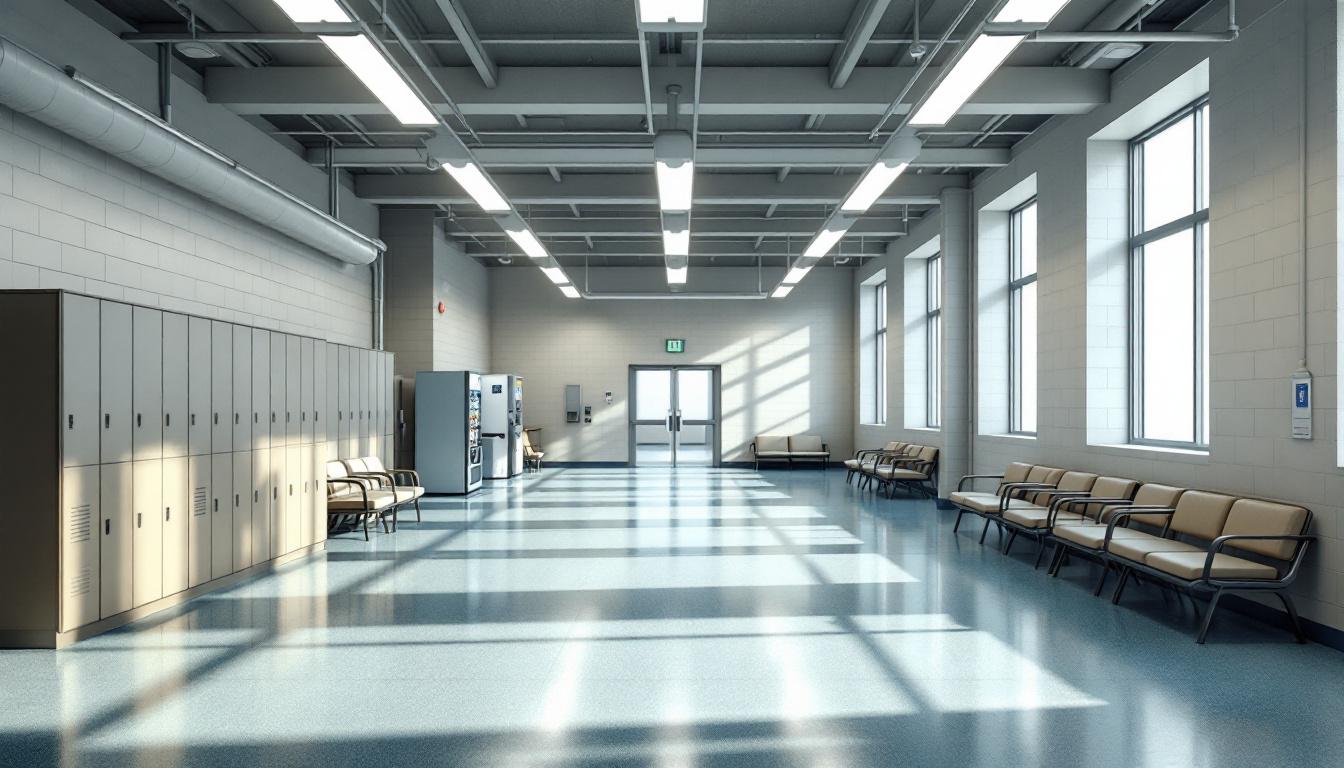
Carefully orchestrated schedules and hierarchical supervision systems shape every aspect of the experience for the population at ASPC Marana Unit. Today's routine typically begins with early morning counts, followed by structured meal periods and work assignments that consistently provide framework throughout the day. The facility generally operates on a predictable schedule that helps maintain order while supplying opportunities for personal development and skill building.
Housing arrangements at the facility typically consist of dormitory-style accommodations or cell-based units, depending on security classification and individual circumstances. The population usually shares common areas for dining, where meals are served at designated times in supervised settings. Personal property allowances generally include basic necessities and approved items that may be purchased through the commissary system, while living spaces are subject to regular inspections and security protocols.
Additionally, structured programming schedules supply various educational, vocational, and therapeutic opportunities designed to support rehabilitation goals. Recreation periods typically include access to outdoor exercise areas, library services, and organized activities that help maintain physical and mental well-being. While security considerations govern all interactions, the facility usually provides multiple communication options for maintaining family connections, including scheduled visitation periods and monitored phone access. Work assignments often range from facility maintenance to food service roles, giving the population opportunities to develop job skills while contributing to daily operations.
Ready to Connect?
Start communicating with your loved one today
Search for an Inmate
